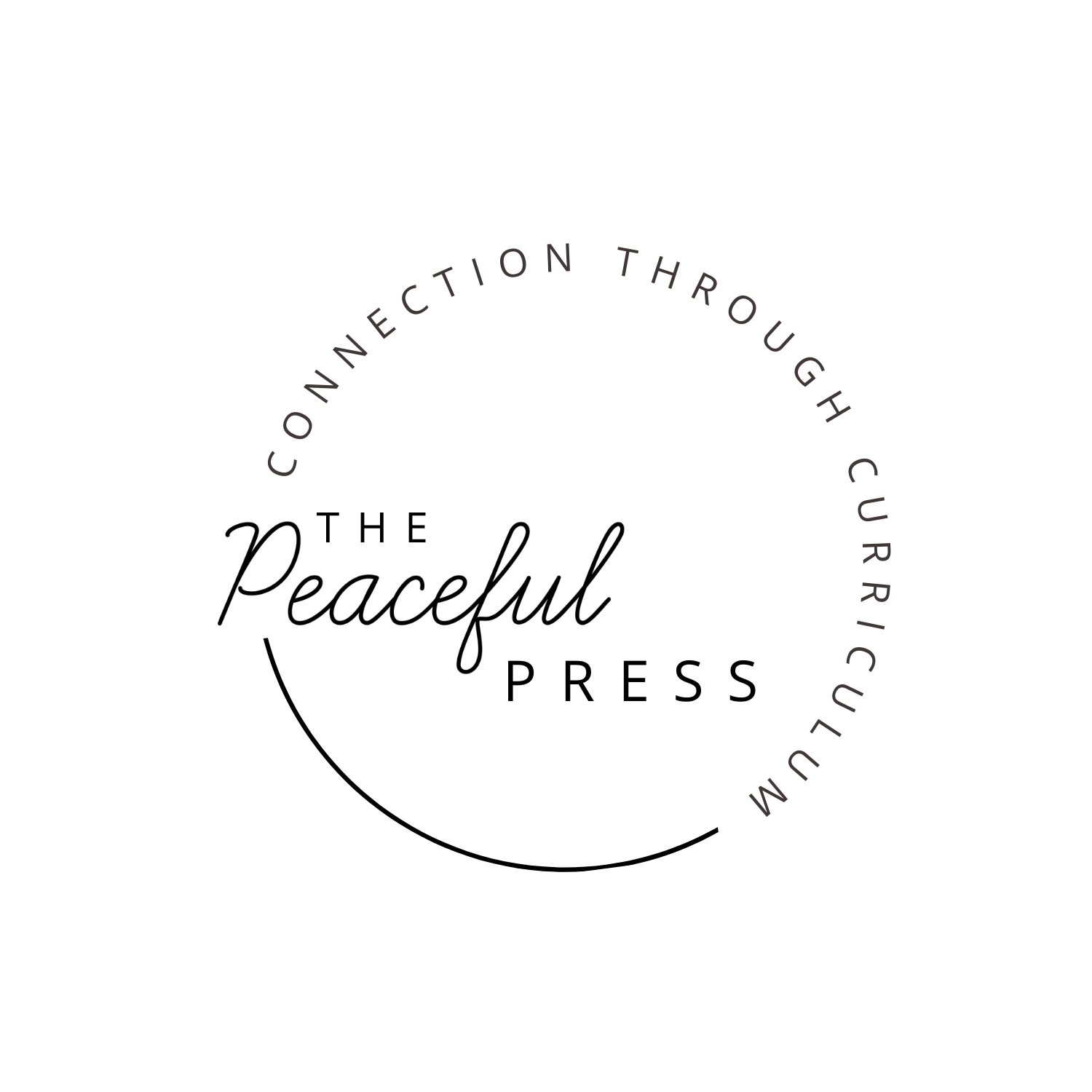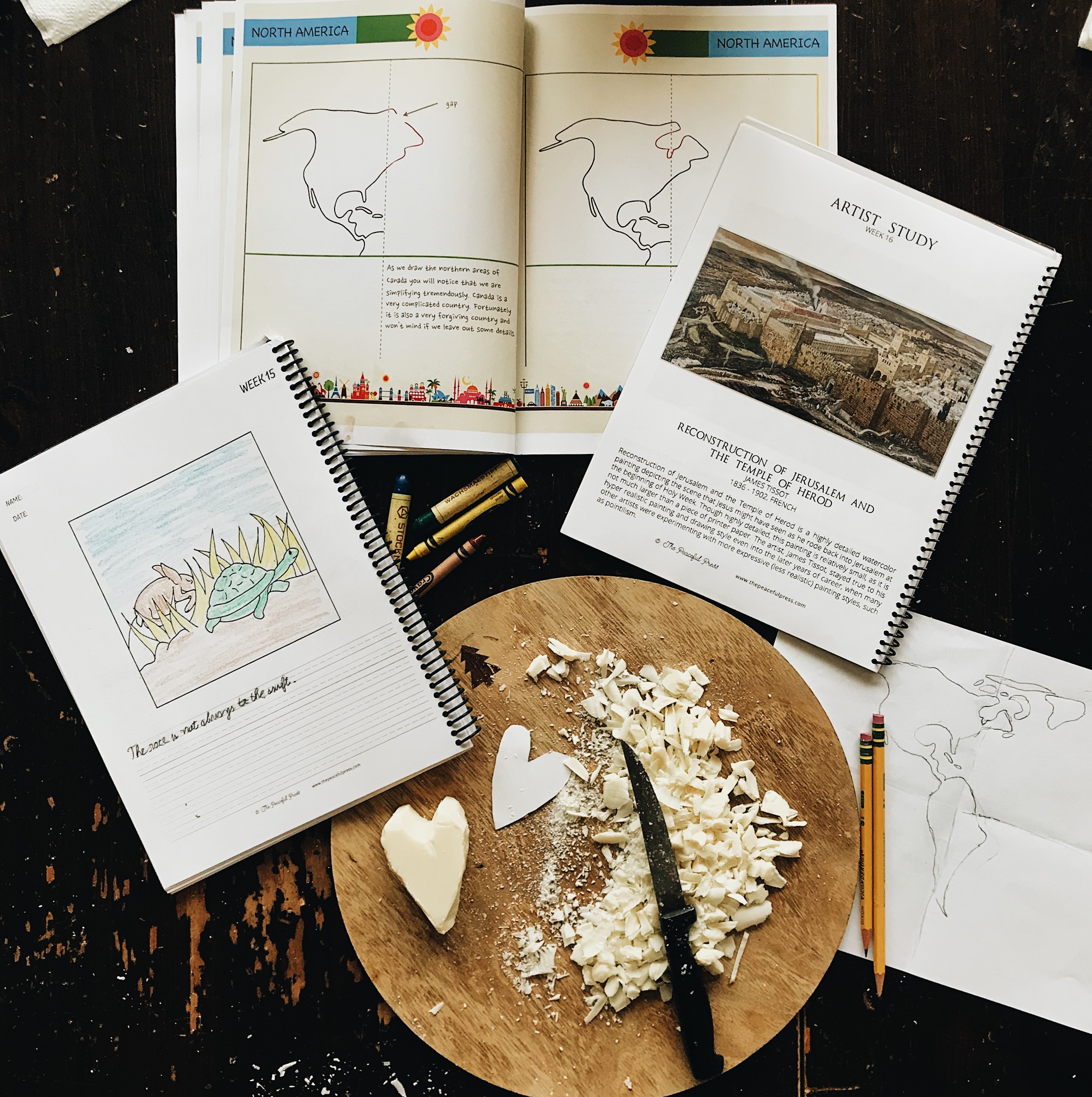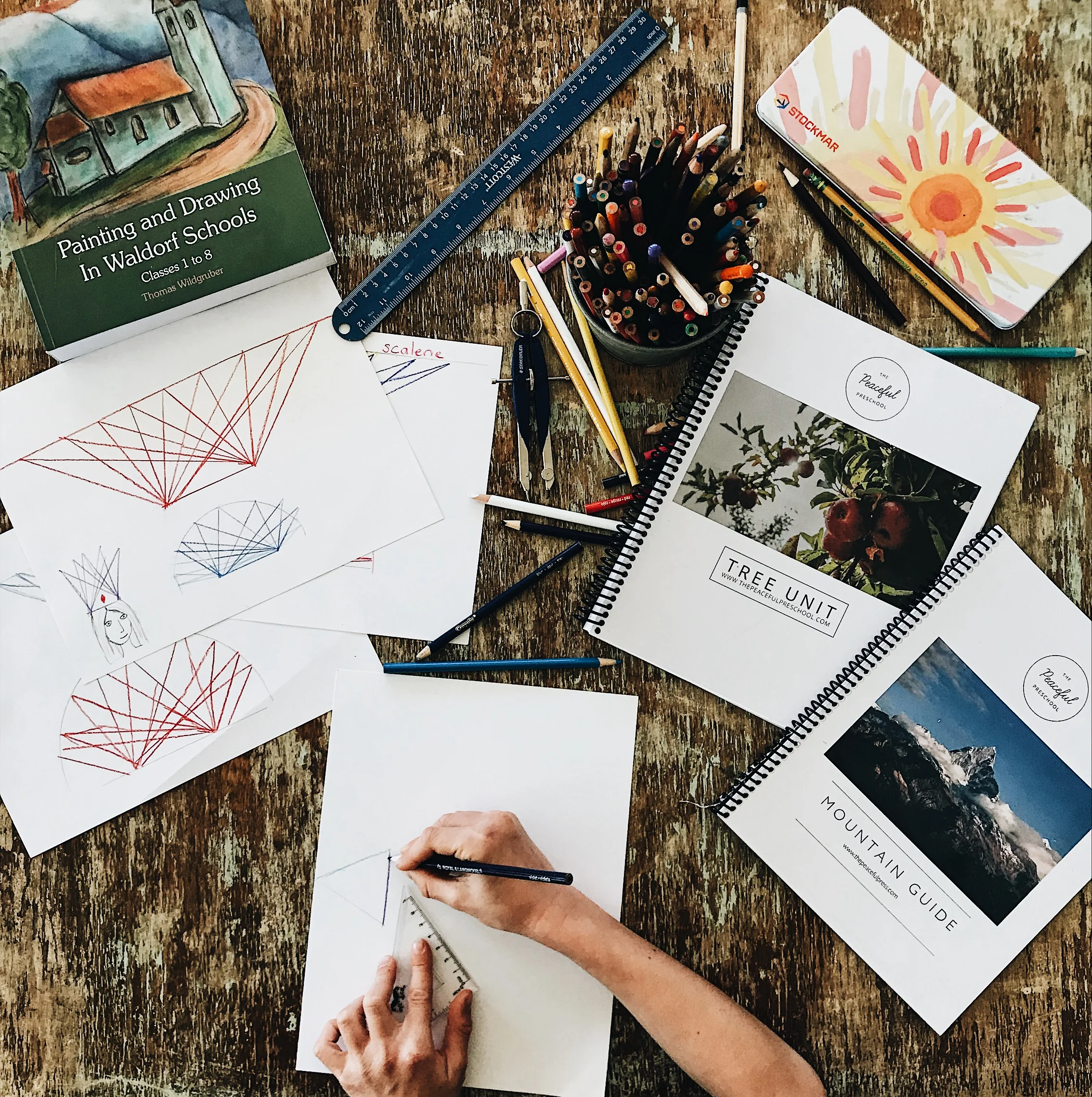The Peaceful Press With Older Children
Although our focus here at The Peaceful Press is helping families homeschool young children, the truth is that children grow, and many of you may be homeschooling young children and older ones, or even homeschooling little ones while mentally gearing up for later. I wanted to share a few resources we have used to homeschool children as they grow into late elementary and beyond.
When I wrote The Playful Pioneers, The Kind Kingdom, and The Precious People, I kept them open-ended in terms of math and language arts so that a family with students of varying ages could use the guide together. One of my major goals with The Peaceful Press is to promote connection among families, and I am convinced that one mama trying to do multiple different curriculums with multiple children will most often result in burnout.
My vision is for homeschooling to be fun for the whole family.
When I looked carefully at the components of a good education; the kind of education that prepares students for college, or at least prepares them to learn what they want to learn, I found a few important basics.
The ability to read information.
The ability to retell or communicate information.
The ability to think critically about information.
Obviously, this is a very basic list, and every family will have a different set of information that is important to them, as well as a different set of values that they want to cultivate.
A more in depth definition of a good education is articulated by John Ruskin in his book, The Crown of Wild Olive.
“The entire object of true education is to make people not merely do the right things, but enjoy the right things-not merely industrious, but to love industry-not merely learned, but to love knowledge-not merely pure, but to love purity-not merely just, but to hunger and thirst after justice.”
In either definition, we should feel permission to devote the elementary school years to learning to read, learning math concepts, and learning to write, and these skills are easy to teach and don’t take all six years to learn. So what should we do with the bulk of our elementary homeschool years? I propose that we should present to our children the idea that we love them, that learning is fun, and that the world is open to discovery.
We do this through reading good books together, copying great thoughts together, learning about math together, baking and creating together, and enjoying nature together. Note the emphasis on togetherness, it is intentional because a child who is attached to their parents, who is full of the knowledge that they have parents who love and enjoy them, will be a child who can learn and achieve anything.
In our home, we follow The Peaceful Press elementary guides with all children who haven’t started college classes (usually my high school students start college classes at the age of 15 or 16). If any of my children are home, they will join us for morning time, reading through The Peaceful Press suggested Bible, history, and literature readings, along with reciting memory work. We leave margin to follow interest-led questions and learning and write down new concepts on our blackboard. While I read aloud, elementary students copy or trace from Playful Pioneers or Precious People student sheets.
In our family morning time, we have also added in a daily Spanish language bible story for immersion foreign language and singing, often with musical accompaniment by one of my children. We also add in interest-led literature, science, and devotional reading.
Once morning time is over, each child moves on to independent learning while I move between them offering help and support. My elementary students use Teaching Textbooks math once they have worked through the first few levels of Right Start math, we are firm believers in the power that Right Start math has to make math meaningful for young children, but we also love Teaching Textbooks for the accountability and immediate feedback it gives. We’ve also begun using a geometry course by Waldorfish that the whole family is enjoying.
For language arts with older children, we start with having them make notebook pages based on our daily readings. This might be a picture and written narration about the chapter we read, or it might be a diagram of something we learned about in Farm Anatomy or another science-themed literature selection. We also do a weekly lesson from U.S. History Based Writing Lessons from Institute for Excellence in Writing or Ancient History Based Writing Lessons or another relevant IEW resource.
I love the way these guides teach basic grammar concepts and an objective way to look at the structure and style of writing. These won’t help your child write beautifully, that comes from reading great works, but it will help you begin to develop the skill of reading material, and then retelling it in your own words, which is one of the components of academic success in college classes (that and a good work ethic).
Another component of success in college classes comes from having a well-developed vocabulary which is a direct result of reading great books. Instead of assigning particular books for children, I keep a basket or shelf of highlighted books for the time period we are studying. Many of these titles can be found in the Independent Reading List that is included in The Peaceful Press elementary curriculum. I’ve only had one child that had to be asked to read, most of my children have outpaced me with their appetite for new books, and so I let them choose which books off the list appeal to them instead of assigning books they don’t enjoy. Twice a month I require a longer written narration based on the books they have read.
A few other resources we have used for older students-
A low cost way to work on memorizing a body of information, and getting an overview of the Classical Conversations memory work.
There are many great resources for giving your older children an overview of world history including the books by Genevieve Foster, A Child’s History of the World by V.M. Hillyer and textbooks like Mystery of History, but this one is a great favorite of mine, partly because he includes women in his list of historical greats, including one of my personal heroes, Julian of Norwich, and partly because he presents events and leaves some of the moral implications for families to sort out for themselves, unlike some of the resources we have used.
We love using Audible for listening to more lengthy books, and for the ability to listen while I join in with painting or knitting, instead of all the reading aloud being my responsibility. We listened to The Children’s Homer, The Bronze Bow, Ben Hur, and The Robe while working our way through The Precious People, and we listened to Shh, We’re Writing the Constitution, Justin Morgan Had a Horse, Across Five Aprils, The Freedom Train, and They Called Him Stonewall, while working through The Playful Pioneers.
An amazing resource for learning anything, and a huge help for subjects that you get stuck on.
This post contains affiliate links for products we love and use.
You may also enjoy:




